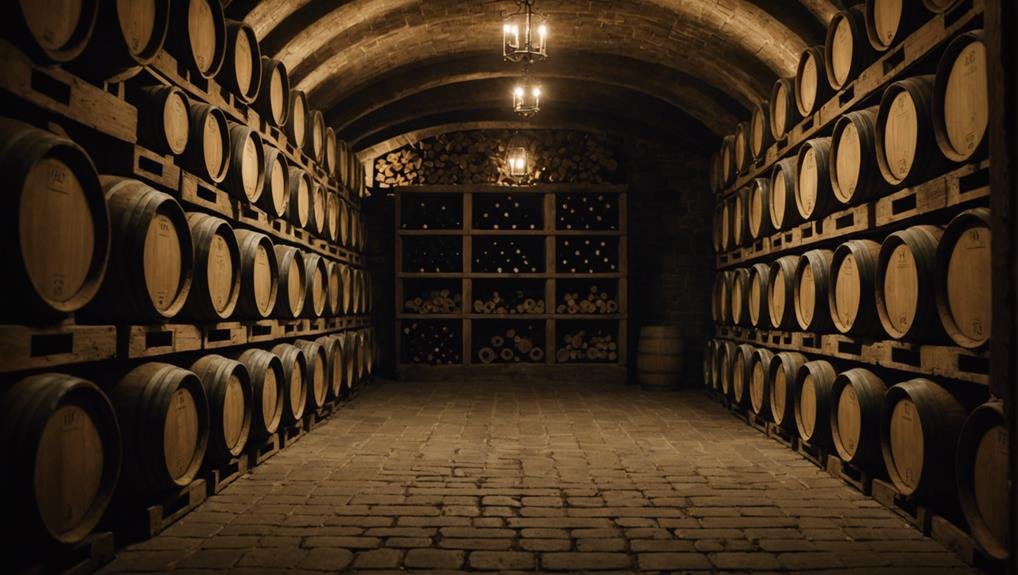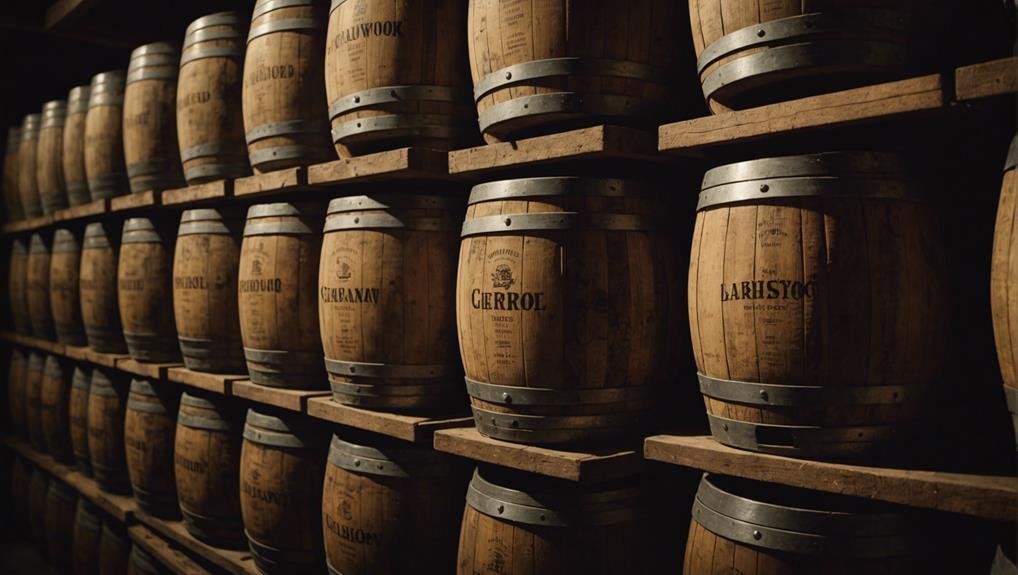As the wine quietly matures in the cellar, the magic of aging unfolds, captivating both newcomers and connoisseurs alike. Understanding the intricate process behind wine aging reveals a fascinating interplay of acidity, tannins, and other key components that shape the wine's journey over time.
This delicate balance unravels the true potential of each bottle, unveiling hidden depths and complexities that only aging can unveil. Join us on a voyage through the art of wine aging, where every sip narrates a tale of patience and refinement, waiting to be savored with each glass.
Factors Influencing Wine Aging

The aging process of wines is influenced by several key factors. These factors include acidity, tannin levels, alcohol content, and residual sugar.
Wines with higher acidity tend to have a longer lifespan, as acids diminish over time. Conversely, wines with low acidity may not age as well. Tannins, commonly found in red wines, provide structure and aid in aging. Well-balanced tannins soften with age, contributing to the wine's aging potential.
The alcohol content also plays a role, with lower levels extending the lifespan of non-fortified wines. Additionally, residual sugar affects aging, with sweet wines like Port and Riesling showing significant potential for aging.
Understanding these factors is crucial for appreciating the complexity of wine aging.
Importance of Acidity and Tannin
When it comes to aging wine, the interplay between acidity and tannin is crucial for its longevity and development. Acidity is key in maintaining a wine's freshness and structure as it ages. Wines with higher acidity levels typically age better, as the acids gradually soften over time. In contrast, wines with low acidity may lack the necessary framework to evolve gracefully.
On the other hand, tannins, commonly found in red wines, provide structure and texture. Higher levels of tannins contribute to a wine's ability to age well, with balanced tannins integrating smoothly as the wine matures. While white wines can age gracefully without tannins, they are essential for red wines seeking long-term aging potential.
Impact of Alcohol and Sugar Levels

When considering how wines age, the levels of alcohol and sugar are key factors that determine their quality and longevity.
The alcohol content of a wine influences how long it can be aged, with lower levels typically extending its lifespan. Wines that are not fortified and have an alcohol by volume (ABV) below 13.5% are generally considered ideal for aging, while fortified wines with higher ABV tend to age the best.
Additionally, the amount of residual sugar in a wine also plays a significant role in its aging potential, with sweeter wines often aging the longest. Varieties such as Port, Sherry, Sauternes, and Riesling are well-known for their excellent aging capabilities due to their residual sugar content.
Therefore, it is important to consider both the alcohol and sugar levels when assessing a wine's ability to mature gracefully over time.
Frequently Asked Questions
Can Wine Age Indefinitely if Stored Properly?
Wine has the potential to age indefinitely when stored properly. Factors such as acidity, tannin levels, alcohol content, and residual sugar all play a role in determining how well a wine will age over time. By understanding these key elements, one can better predict the longevity and quality of a wine as it matures.
Do All Grape Varieties Age the Same Way?
Different grape varieties age differently based on their acidity, tannin levels, alcohol content, and residual sugar. Wines with higher acidity and tannins are known to age well, while those with lower alcohol and higher sweetness tend to age for a longer period. It is essential to consider these factors to understand the aging potential of different grape varietals.
Is Decanting Necessary for Aging Wine?
Decanting wine is not essential for aging. While decanting can help young wines by allowing them to breathe and develop, it is not a crucial factor in the aging process. The key elements for successful aging are proper storage conditions and the inherent characteristics of the wine itself.
Can I Age Wine in a Regular Refrigerator?
If you're a wine enthusiast, you may want to consider getting a wine fridge instead of relying on a regular refrigerator. While a standard fridge can maintain a consistent temperature, it may not provide the ideal humidity levels and may produce vibrations that are not suitable for properly aging wine. Investing in a wine fridge allows you to have precise control over storage conditions, ensuring that your wines age gracefully and develop their full flavor profiles. It's a smart choice for any wine lover looking to enhance their collection and savor the best possible taste experience.
Does the Shape of the Wine Bottle Affect Aging?
The shape of a wine bottle can affect how wine ages. Bordeaux-style bottles, with their high shoulders, are great for red wines as they help collect sediment. On the other hand, sloped-shoulder bottles are more suitable for white wines as they help preserve delicate aromas. It's worth noting that while bottle shape plays a role in aging, there are many other factors that have a greater impact on the process.
Conclusion
In the world of wine, the balance of acidity, tannins, alcohol, and sugar levels is key to how a wine matures over time. Research indicates that wines with higher acidity tend to age better, highlighting the significance of this factor in preserving the wine's freshness and complexity as it evolves.
Understanding these fundamental components allows wine enthusiasts to appreciate the intricate transformation that takes place, turning a simple bottle into a timeless work of art.